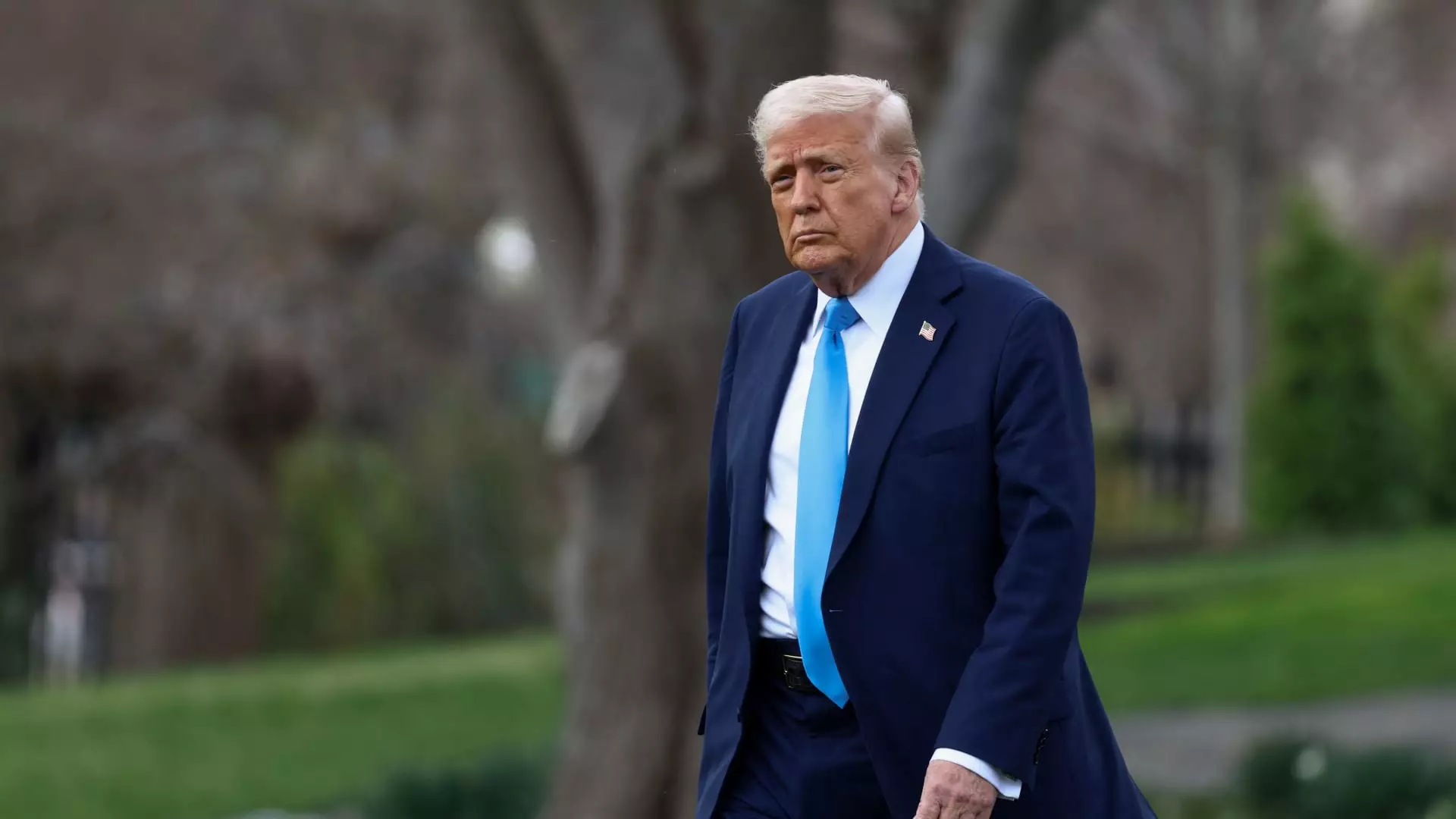The political landscape has often been a game of chess, but in the case of President Donald Trump and his reactions to Russian President Vladimir Putin’s recent comments about Ukraine, it seems more akin to a wild game of poker. With statements dripping with frustration, Trump found himself “very angry” and “pissed off” at Putin’s critique of Ukrainian President Volodymyr Zelenskyy. Such a display of emotion is troubling, particularly for a leader tasked with steering the helm amidst an ongoing international crisis. While passion can drive a leader, it can also cloud judgment. The potential for rash decisions increases as emotions run high, which is precisely what we observed in this instance.
Putin’s remarks advocating for a transitional government in Ukraine serve not only as a challenge to Zelenskyy but also as a direct affront to U.S. interests in the region. A shift towards a transitional government could fundamentally destabilize not only Ukraine but also throw the region into a deeper geopolitical crisis. Trump’s response, however, reiterates the fragile balance he attempts to maintain. Declaring that he might impose secondary tariffs on Russian oil is a compelling, albeit hollow, rebuke when contrasted against his historical praise of authoritarian leaders. Where is the consistency? Trump’s threats of tariffs could potentially send ripple effects through the global economy, but do they represent a substantial shift in policy, or just political theater?
Rhetoric Over Strategy
One cannot escape the sense that Trump’s foreign policy is often marred by reactive rhetoric rather than a coherent strategy. Earlier statements where Trump expressed his discontent with Zelenskyy’s attempts to navigate the war raised social media eyebrows. Calling a democratically elected leader a “dictator” is a daring move and serves to undermine our alliances with nations that share our democratic values. This inconsistency raises pertinent questions about what kind of global relationships Trump hopes to forge. It appears the president’s previous statements about wanting to limit U.S. involvement in long-standing conflicts clash dangerously with his current approach.
By positioning himself as someone seeking to mediate the violence while simultaneously placing punitive measures on oil imports, Trump risks losing credibility in the eyes of international allies. A promise to impose a staggering 25% tariff on Russian oil could be alluring for quick political gains but may have long-term ramifications. The international community might view this as grandstanding rather than genuine diplomacy. The stark reality is that the U.S. cannot afford to alienate potential allies in an already unstable global context where Russia is continually probing the boundaries of Western resolve.
The Hurdles and Hopes in the Ukraine Crisis
Trump framed ending the war in Ukraine as a key foreign policy goal during his campaign. Yet, genuine progress seems elusive as tactical retreats and media soundbites overshadow real diplomatic efforts. The recent partial ceasefire between Russia and Ukraine should have been a breakthrough moment; instead, it has morphed into a platform for Trump to vent rather than strategize. The ability to navigate complex negotiations is not merely about inserting punitive tariffs; it’s also about finding common ground.
Trump is paradoxically leading a discourse that oscillates between belligerent posturing and gestures of goodwill toward Putin. A relationship that Trump describes as “very good” is now strained with a heated emotional undercurrent. His public proclamations must be carefully weighed against the realities of international relations. High-stakes diplomacy requires not only conviction but calculated, strategic foresight—qualities that seem to be in short supply right now.
The Iran Equation
As if the situation in Ukraine were not enough to manage, Trump’s threats do not stop there. His alarming comments about bombing Iran should the nation fail to negotiate on nuclear capabilities shift the entire geopolitical tone to one of frenetic unpredictability. Herein lies a burgeoning dilemma: Two nuclear-armed nations that could find themselves at a precipice due to a leader’s provocative rhetoric. Instead of diplomacy, we are confronted with an alarming possibility of military action, echoing the same patterns that led to disastrous interventions in the past.
The rejection of direct negotiations by Iran in response to Trump’s overtures reflects a broader trend of distrust and communication breakdown. This pattern raises serious concerns about America’s ability to influence any peaceful resolutions when aggressive posturing takes precedence over negotiating tables. In a world rattled by multiple crises, fostering cooperative international relations should arguably be the foremost priority.
Ultimately, Trump’s wild swings in foreign policy emphasize a need for a more grounded, strategic approach that focuses on building alliances rooted in democratic principles. The messy give-and-take of government requires steady hands, and right now, the world is holding its breath as we watch a potentially reckless game unfold.



Leave a Reply